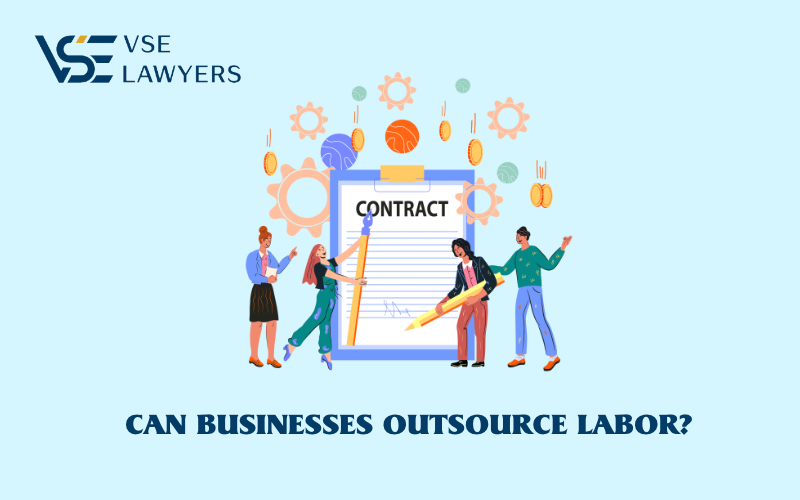CAN BUSINESSES OUTSOURCE LABOR?
Enterprises can rehire previously hired labor to meet their production or service needs. Labor outsourcing can be through HR service providers or self-managed businesses. However, it is necessary to ensure the rights and safety of labor when performing labor outsourcing.
30/06/2023

Enterprises can rehire previously hired labor to meet their production or service needs. Labor outsourcing can be through HR service providers or self-managed businesses. However, it is necessary to ensure the rights and safety of labor when performing labor outsourcing.
I. Concept of labor outsourcing:
Pursuant to Clause 1, Article 52 of the Labor Code 2019, labor outsourcing is when an employee signs a contract with a labor outsourcing enterprise, then is transferred to work and obeys the management of another employer, but still retain labor relations with the original enterprise. This activity is a conditional business line, so it is only carried out by enterprises that have a labor outsourcing license and only apply to certain jobs according to Appendix II of Decree 145/2020/ND-CP.
II. Conditions for labor outsourcing enterprises and outsourcing employers:
For labor outsourcing enterprises, the following conditions should be met (Article 54 of the Labor Code 2019 is detailed in Articles 12 and 21 of Decree 145/2020/ND-CP):
- The enterprise is legally established under Vietnamese law.
- Have been granted a Labor Outsourcing License.
- The legal representative of the enterprise performing labor outsourcing activities must: Be the enterprise manager in accordance with the Law on Enterprises; There were no convictions; Having worked directly as a professional or manager in labor outsourcing or labor supply for full 03 years (36 months) or more during the preceding 05 years before applying for a license.
- The enterprise has made a deposit of VND 2,000,000,000.
For outsourced employers, pursuant to Clause 2, Article 53 of the Labor Code 2019, the outsourcing party may use the outsourced labor in the following cases:
(1) Temporarily respond to a sudden increase in demand for labor within a certain period of time;
(2) Replacing employees on maternity leave, suffering from labor accidents, occupational diseases, or having to perform civic duties;
(3) There is a demand for employers with high professional and technical qualifications.
Cases in which the outsourcing party may not use the outsourced labor:
(1) To replace the employee who is in the process of exercising the right to strike or settle the labor dispute;
(2) There is no specific agreement on the liability for compensation for labor accidents and occupational diseases of the outsourced employee with the outsourcing enterprise;
(3) Replace employees who are laid off due to changes in structure, technology, economic reasons or division, separation, consolidation or merger.
III. Contents of labor leasing contract:
A labor leasing contract is a contract signed in written form between the labor leasing enterprise and the outsourcing party. According to Clause 2, Article 55 of the Labor Code, a labor leasing contract usually includes the following contents:
- Working location, job position to be outsourced by the employer, specific contents of the job, specific requirements for the outsourced employee;
- Term of labor outsourcing; the time of commencement of work of the outsourced employee;
- Working time, rest time, occupational safety and hygiene conditions at the workplace;
- Responsibility for compensation for labor accidents and occupational diseases; - Obligations of each party towards employees. The maximum term of labor outsourcing for employees is 12 months.
----------
For more information, please contact:
Hoang Pham (James) / Managing Partner at: hoang.pham@vselawyers.com
© 2023 VSE LAWYERS LIMITED LIABILITY LAW COMPANY – All rights reserved.
Attention: This legal update is not an advice and should not be treated as such.
Subscribe To Legal Advice from VSE Lawyers
If you would like to have any legal questions, please contact us for our advice




